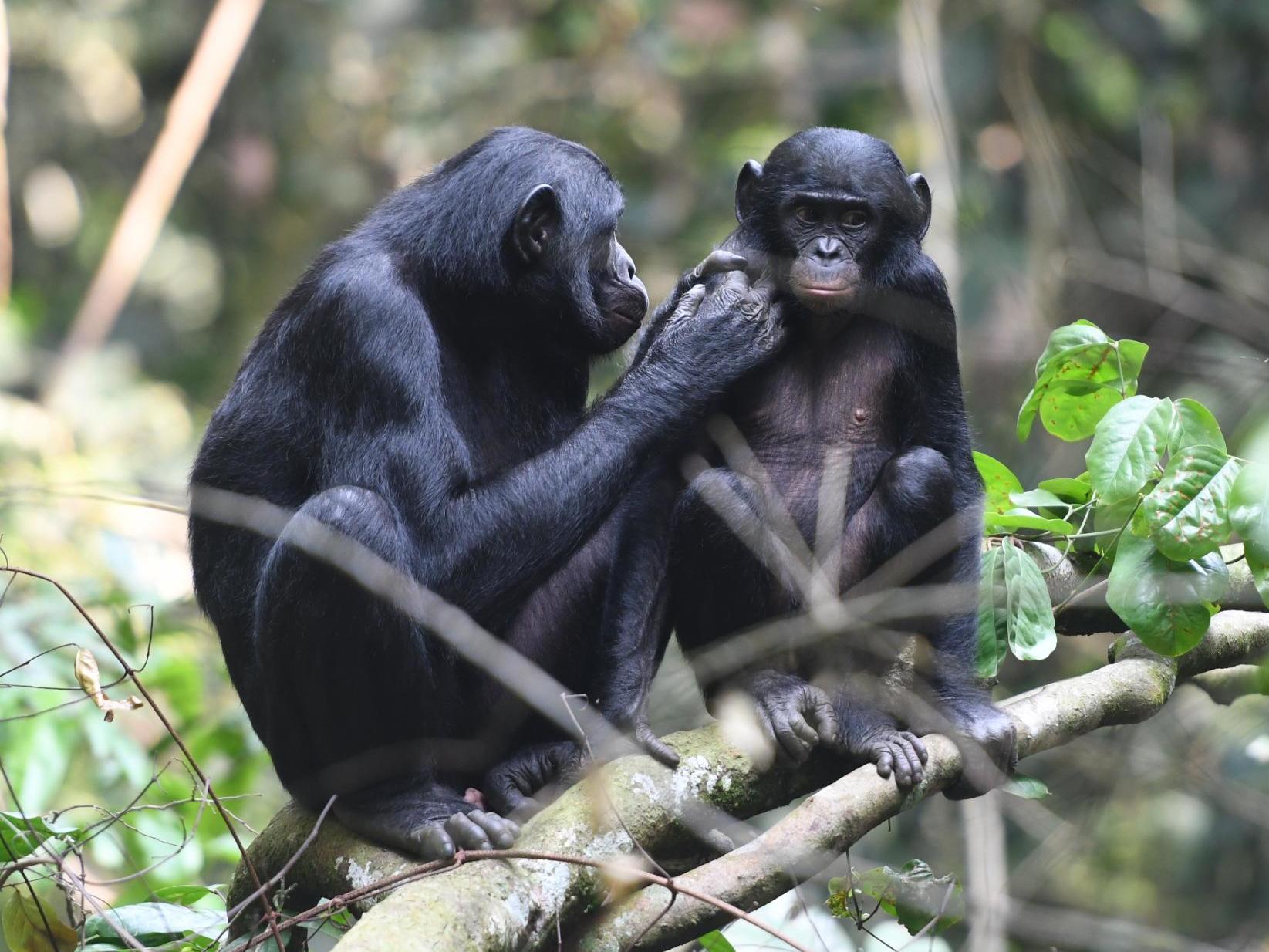Mummy's boy: Bonobo mothers make sure their sons find fertile females
This behaviour triples the chance of their son having his own offspring, researchers say

Your support helps us to tell the story
From reproductive rights to climate change to Big Tech, The Independent is on the ground when the story is developing. Whether it's investigating the financials of Elon Musk's pro-Trump PAC or producing our latest documentary, 'The A Word', which shines a light on the American women fighting for reproductive rights, we know how important it is to parse out the facts from the messaging.
At such a critical moment in US history, we need reporters on the ground. Your donation allows us to keep sending journalists to speak to both sides of the story.
The Independent is trusted by Americans across the entire political spectrum. And unlike many other quality news outlets, we choose not to lock Americans out of our reporting and analysis with paywalls. We believe quality journalism should be available to everyone, paid for by those who can afford it.
Your support makes all the difference.Many mothers pry into their children’s personal lives but few take such drastic measures as bonobo mothers, who physically chaperone their adult sons towards fertile females.
These strong-willed chimpanzees also prevent other males getting near ovulating females to give their offspring an advantage, according to a new paper.
This behaviour might seem a little overbearing but it’s very effective, tripling the chance of their son having his own offspring.
“This is the first time that we can show the impact of the mother’s presence on a very important male fitness trait, which is their fertility,” said lead researcher Martin Surbeck, a primatologist at the Max Planck Institute for Evolutionary Anthropology.
“We were surprised to see that the mothers have such a strong, direct influence on the number of grandchildren they get.”
Bonobos have a matriarchal society and females are able to use their rank to give their sons access to the best spots in social groups which also helps them achieve higher status.
According to the paper, published in Current Biology, female offspring are simply left to their own devices.
“In bonobo social systems, the daughters disperse from the native community and the sons stay. And for the few daughters that stay in the community, which we don’t have many examples of, we don’t see them receiving any help from their mothers,” said Dr Surbeck.
Researchers observed wild populations of bonobos – humankind’s closest living relative – in the Democratic Republic of Congo. They also observed wild populations of chimpanzees in Côte d’Ivoire, Tanzania, and Uganda.
Both bonobo and chimpanzee mothers would support their sons in male-on-male conflicts but only bonobo mothers would support their sons in finding potential mates.
Researchers say these interactions are rare in chimpanzee societies because males are dominant over females meaning chimp mothers are less influential than bonobo mothers.
“These females have found a way to increase their reproductive success without having more offspring themselves,” said Dr Surbeck.
Researchers are looking to collect more data on the post-reproductive lifespans of females in chimp and bonobo communities.
Join our commenting forum
Join thought-provoking conversations, follow other Independent readers and see their replies
Comments